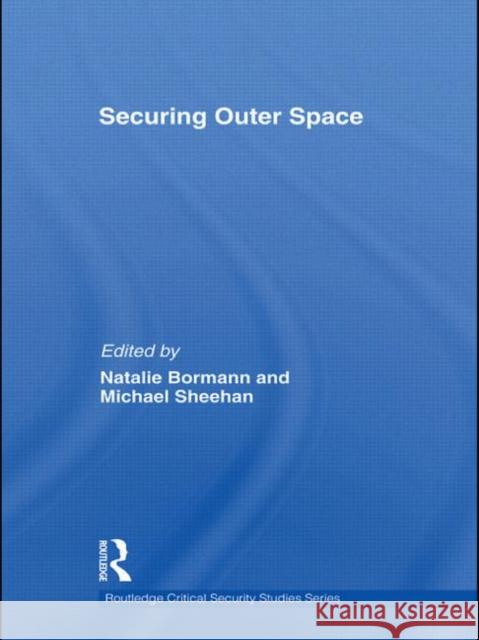Securing Outer Space » książka
Securing Outer Space
ISBN-13: 9780415460569 / Angielski / Twarda / 2009 / 272 str.
The challenges that space poses for political theory are profound. Yet until now, the exploration and utilization of space has generally reflected - but not challenged - the political patterns and impulses which characterized twentieth-century politics and International Relations. This edited volume analyses a number of controversial policies, and contentious strategies which have promoted space activities under the rubric of exploration and innovation, militarization and weaponization, colonization and commercialization. It places these policies and strategies in broader theoretical perspective in two key ways. Firstly, it engages in a reading of the discourses of space activities: exposing their meaning-producing practices; uncovering the narratives which convey certain space strategies as desirable, inevitable and seamless. Secondly, the essays suggest ways of understanding, and critically engaging with, the effects of particular space policies. The essays here seek to 'bring back space' into the realm of International Relations discourse, from which it has been largely removed, marginalized and silenced. The various chapters do this by highlighting how activities in outer space are always connected to earth-bound practices and performances of the every day. Securing Outer Space will be of great interest to students of space power, critical security studies and IR theory.
The challenges that Space poses for political theory are profound. For the most part, the exploration and utilization of space has reflected, not challenged, the political patterns and impulses that characterized twentieth-century politics and international relations.
This edited volume seeks to analyse and explain a number of controversial policies, and contentious strategies that promote Space activities in various ways under the rubric of exploration and innovation, militarization and weaponization, colonization and commercialization. However, the aim of the book is to place these in a broader theoretical perspective by attempting to achieve two objectives. First, it engages in a reading of Space that traces the discourses of Space activities, exposes their meaning-producing practices, and unearths the narratives that give possibility to seeing particular Space strategies as desirable, inevitable and seamless. Second, the book suggests ways in which we can articulate an understanding of, and critically engage with, the effects of particular manifestations of Space policies.
The essays here seek to ‘bring back Space’ into the realm of international relations discourse from which it has been largely removed, marginalized and silenced. The various chapters do so by highlighting how activities in Outer Space are always connected to earth-bound practices and performances of the every day.











